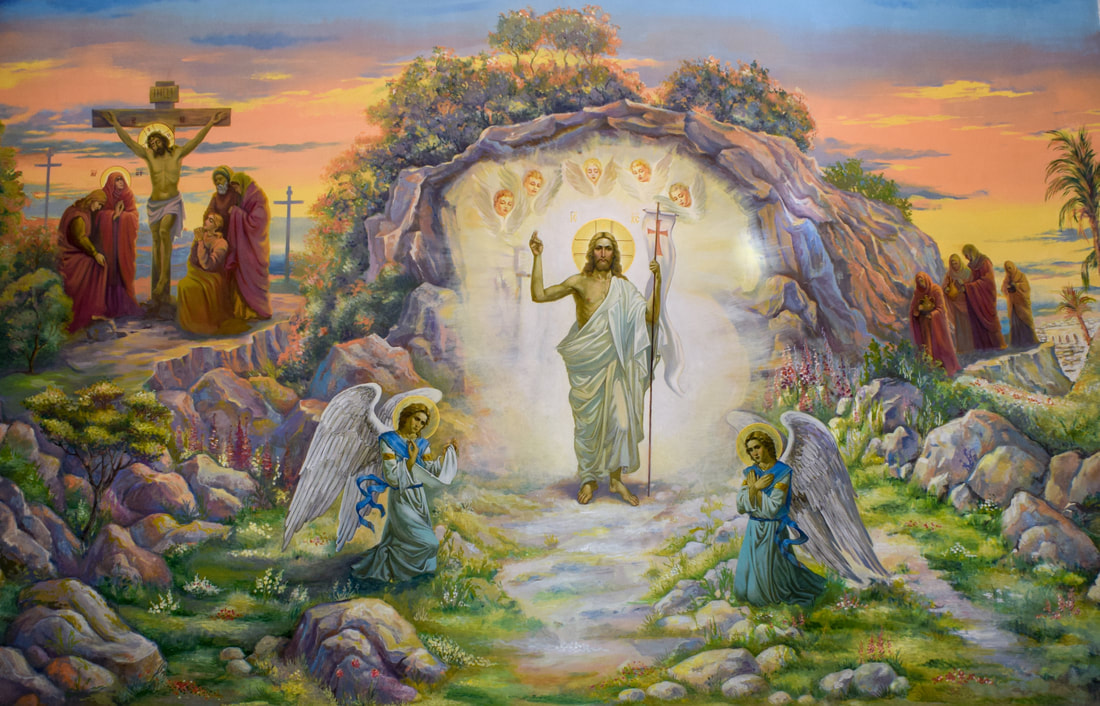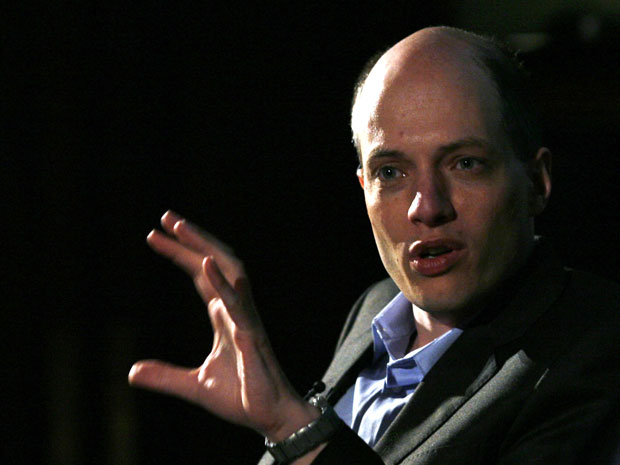(This is the twenty-eighth entry in The Modern Library Nonfiction Challenge, an ambitious project to read and write about the Modern Library Nonfiction books from #100 to #1. There is also The Modern Library Reading Challenge, a fiction-based counterpart to this list. Previous entry: James Joyce.)
 As I write these words — some eight months before a fateful presidential election threatens to steer my nation into a theocratic hellscape that will permanently erode many of the liberties and freedoms I have been humbled to partake in for cnearly fifty years — the tireless researchers at PRII inform me that Christian nationalism has substantive support in all fifty states (with the exception of California, New York, and Virginia — in which 75% remain skeptics or outright reject it), the Pew Research Center reports that 45% of Americans believe that our democratic republic should be “a Christian nation,” and 55% of Latino Protestants support Christian nationalism. Blind zealotry, even with white supremacy mixed into the sickening formula, comes in many colors.
As I write these words — some eight months before a fateful presidential election threatens to steer my nation into a theocratic hellscape that will permanently erode many of the liberties and freedoms I have been humbled to partake in for cnearly fifty years — the tireless researchers at PRII inform me that Christian nationalism has substantive support in all fifty states (with the exception of California, New York, and Virginia — in which 75% remain skeptics or outright reject it), the Pew Research Center reports that 45% of Americans believe that our democratic republic should be “a Christian nation,” and 55% of Latino Protestants support Christian nationalism. Blind zealotry, even with white supremacy mixed into the sickening formula, comes in many colors.
Undoubtedly, many of these hayseed fanatics are easily manipulated and illiterate. They conveniently overlook the “love thy neighbor” ethos from Western civilization’s best known zombie in favor of a greater affinity for the limitless imbecility of zealous violence and tyranny, falsely believing themselves to be misunderstood rebels living in a new Roman Empire — this as the very institutional framework continues to uphold their right to yap and bellow in hateful and discriminatory terms as they line the pockets of wealthy telegenic carpetbaggers like Joel Osteen. They lead campaigns to ban books and to deracinate vital areas of knowledge from schools which offend their delicate and autocratically vanilla sensibilities. While the Book of Luke informs us that Christ asked us to “love and pray for our enemies,” you will find these unremarkable lemmings keeping their traps shut as trans kids commit suicide or another maniac massacres dozens in the week’s latest mass shooting. (Unable to summon true comity for anyone who deviates from their ugly and crudely formed politics, right-wing statesmen have substituted “love” for “thoughts,” presumably so they can show up to church on Sunday with a “clean” Christian conscience — even though they do nothing to curb this malignant cancer and care no more for these victims than any garden-variety sociopath.)
It has frequently been observed that atheists like myself know the Bible better than these monomoniacal morons. I have often been surprised by how easy it is to thoroughly rebut some born-again loser based on a singular reading of the King James more than twenty years ago and my apparent recall of specific passages that are well outside the soft and useless hippocampi of my hopelessly dim opponents. It never occurs to Christians to question their faith or even to comprehend (much less read) the very words they purport to uphold in their everyday living. And it certainly wouldn’t occur to them to consider that, much like any moment in history, the narrative and the very belief structure upholding this nonsense was written by the winners, by those who spent the majority of their lives silencing (and even murdering) anyone who offered perfectly reasonable questions about a man who rose from the dead.
Elaine Pagels’s excellent book, The Gnostic Gospels, is an equitable study of the many Gnostic sects that dared to question the Christian status quo. Indeed, had not the 52 treatises been discovered in Nag Hammadi in 1945, there is a good chance that many of us who tirelessly call out bullshit on all fronts would have lacked a far more seminal faith than one in Christ — namely, a boundless pride in our ancestors practicing the vital art of critical thinking.
The orthodox position of the Resurrection, as defined by Tertullian, is quite clear. Jesus Christ rose from the dead with full corporeal gusto. It was “this flesh, suffused with blood, built up with bones, interwoven with nerves, entwined with veins” (one might add “consummated with claptrap” and “molded with malarkey” to this laundry list). Tertullian further adds, “it must be believed, because it is absurd!” And, look, I’d like to believe in kaiju secretly emerging from the oceans to stomp on every megachurch from here to Alpharetta, Georgia, but I have confined my love for absurdity to my deviant imagination and my performative antics on TikTok.
What’s especially astonishing about Tertullian is how literal he is. The New Testament is ripe with stories in which Jesus’s disciples are invited to prod and touch the newly reanimated corpse. (There is curiously nothing in the Bible in which anyone asks Jesus about why he doesn’t carry the pungent smell of the dead or how the bearded wonder managed to rid himself of all the maggots gnawing at his decaying flesh.) And yet Pagels points out that not every story within the New Testament aligns with Tertullian’s “my way or the highway” interpretation of full-fledged concrete return. Acts 9:3-4 informs us that Christ’s Resurrection is merely “a light from heaven” with a voice. Acts 22:9 even points out that some observed the light, but ‘heard not the voice that spake to me.” And if that’s the case, would Tertullian have declared the Apostles heretics? In Acts, Christ’s “return” sounds very much like a low-rent Vegas act without a PA system.
And that’s just in the Bible, folks! I haven’t even snapped my fingers to summon the Gnostics on stage. Depending upon what part of the Bible you read, it is either Peter or Mary Magdalene who first sees Christ rise from the dead. Paul tells us that Christ said hello to five hundred people all at once. And if we take that literally, any of us could now do the same thing on social media. Pagels informs us that from the second century onward, “orthodox churches developed the view that only certain resurrection appearances actually conferred authority on those who received them.” And just like that, the manner in which you contend with Christ’s reappearance isn’t all that different from telling the right story to some bouncer on a Saturday night to slip past the velvet rope!
Believe in the power of this two-bit magician and the terms of the deal, as set up by Luke, are as follows: Christ returned from the dead, walked the earth for forty days, and then rose to the heavens in a bright coruscating light. This may not have the razzle-dazzle of Cirque du Soleil, but it is a belief that has nevertheless been swallowed whole and without question by generations of gullible rubes.
The Gnostics were the first to call this “the faith of fools.” In The Acts of John, one of the rare Gnostic texts that survived before Nag Hammadi in fragmented form, John offers the completely reasonable argument that, because Christ did not leave any footprints, he could not possibly be human, but spiritual. The Gnostics clearly had a more sophisticated interpretation of the Resurrection: it was not the literal observation of Christ’s Resurrection that counted, but the spiritual meaning behind it. But the underlying facts didn’t matter nearly as much as winning over the authorities who conferred you with a position of trust:
Consider the political implications of the Gospel of Mary: Peter and Andrew, here representing the leaders of the orthodox group, accuse Mary — the gnostic — of pretending to have seen the Lord in order to justify the strange ideas, fictions, and lies she invents and attributes to divine inspiration. Mary lacks the proper credentials for leadership, from the orthodox viewpoint: she is not one of the ‘twelve.’ But as Mary stands up to Peter, so the gnostics who take her as their prototype challenge the authority of those priests and bishops who claim to be Peter’s successors.
It thus became necessary for the Gnostics to expand authority to those who stood outside the Twelve. Some Gnostics were generous enough to ascribe VIP treatment to the Disciples, claiming that they had received the kind of custom vision that is a bit like the gift you receive nine months after you donate to a Kickstarter campaign. But as you can imagine, all this resulted in many elbowing their way into a vicious power grab over which interpretation of the Resurrection represented the “true” belief. And there was another important consideration. If Christ himself served as the truest source of spiritual authority, who then would be the authority in the years after his crucifixion and his “Hey there, baby!” sojurn from the great beyond?
The more bellicose strains of Christianity continue to endure in large part because a belief in Christ conveniently allows you to disguise your own sinister lunges for power. Enter Pope Clement I, who was arguably the first significantly ruthless monster who saw an opportunity. Clement insisted that, in the absence of his august presence, God delegates his authority to the “rulers and leaders on earth.” Naturally, these “rulers and leaders” were bishops, deacons, and priests. And if you didn’t bend at the knee to these sham practitioners, then Clement stated, with his great gift for speaking without nuance, that you would receive the death penalty.
Of course, this raises the question of whom you can trust within the church: an issue that has become evermore important given the decades of sexual abuse carried out by men of the cloth within the Catholic Church. A bloodthirsty fellow by the name of Irenaeus succeeded in widening the divide between orthodoxy and the Gnostics by suggesting that any interpretation existing outside Clement’s stern terms was not only heretical, but originated from Satan himself, thus paving the way for Christians to denounce any belief or behavior they disagreed with as “Satanic” over the next two thousand years. Over the years, they proceeded to execute innocent women in Salem and imagine Satanic messages in records.
These developments spelled trouble for the poor Gnostics. Within a few centuries, their texts were buried and destroyed. Their reasonable questions and liberal interpretations became casus belli to string them up. The Christians had the good sense to market themselves as victims persecuted by the Roman Empire and they began to realize sometime in the second century that pointing out how Christians suffered was a great draw for new acolytes. (Eighteen centuries later, Israel would employ the same tactic: use the suffering from the Holocaust to recruit Zionists, where they could then justify the seizure of Palestinian land and the mass-murdering of children on the Gaza Strip.) All this is a pity. Because the Gnostics were often far more interesting in their radicalism and their creative liturgical analysis than what we find in the so-called Holy Book. Consider The Gospel of Philip‘s inventive spin on the virgin birth. How can the Spirit be both Virgin and Mother? By a union between the Father of All and the Holy Spirit. And unlike the Christians, The Gospel of Peter ascribed a third quality to the Divine Mother (the first two being the Silence and the Holy Spirit): Wisdom, clearly delineated as a feminine power.
It is a testament to Christianity’s enduring evil that few people listen to the Gnostics in the twenty-first century. But if their reasonable transposition of literal interpretation to metaphor had become the more dominant text, it is quite possible that the millions of nonbelievers who died during the Crusades might have survived and that the present plague of Christian nationalism, which remains highly dangerous and ubiquitous in our dystopian epoch, might have nestled into the less injurious category of “optional only.”
{Next Up! William H. McNeill’s The Rise of the West!)



 I’m fine with the appreciation and education of American history. I’m not so fine on politicians seeing deities and religious influence in every corner and demanding that the country be “educated” about it. In examining Forbes’s endless “Whereases,” I’ve found more than a few historical humdingers and at least one egregious prevarication.
I’m fine with the appreciation and education of American history. I’m not so fine on politicians seeing deities and religious influence in every corner and demanding that the country be “educated” about it. In examining Forbes’s endless “Whereases,” I’ve found more than a few historical humdingers and at least one egregious prevarication.  The bullshit actually comes from Forbes, who puts phrases into Rev. Allison’s mouth that, as we can see and unless I can be proven wrong, simply don’t exist on the official record available to the public. Allison got Congress to move the Bibles not because Congress “desired to have a Bible printed under their care & by their encouragement,” but because, as the record states:
The bullshit actually comes from Forbes, who puts phrases into Rev. Allison’s mouth that, as we can see and unless I can be proven wrong, simply don’t exist on the official record available to the public. Allison got Congress to move the Bibles not because Congress “desired to have a Bible printed under their care & by their encouragement,” but because, as the record states: